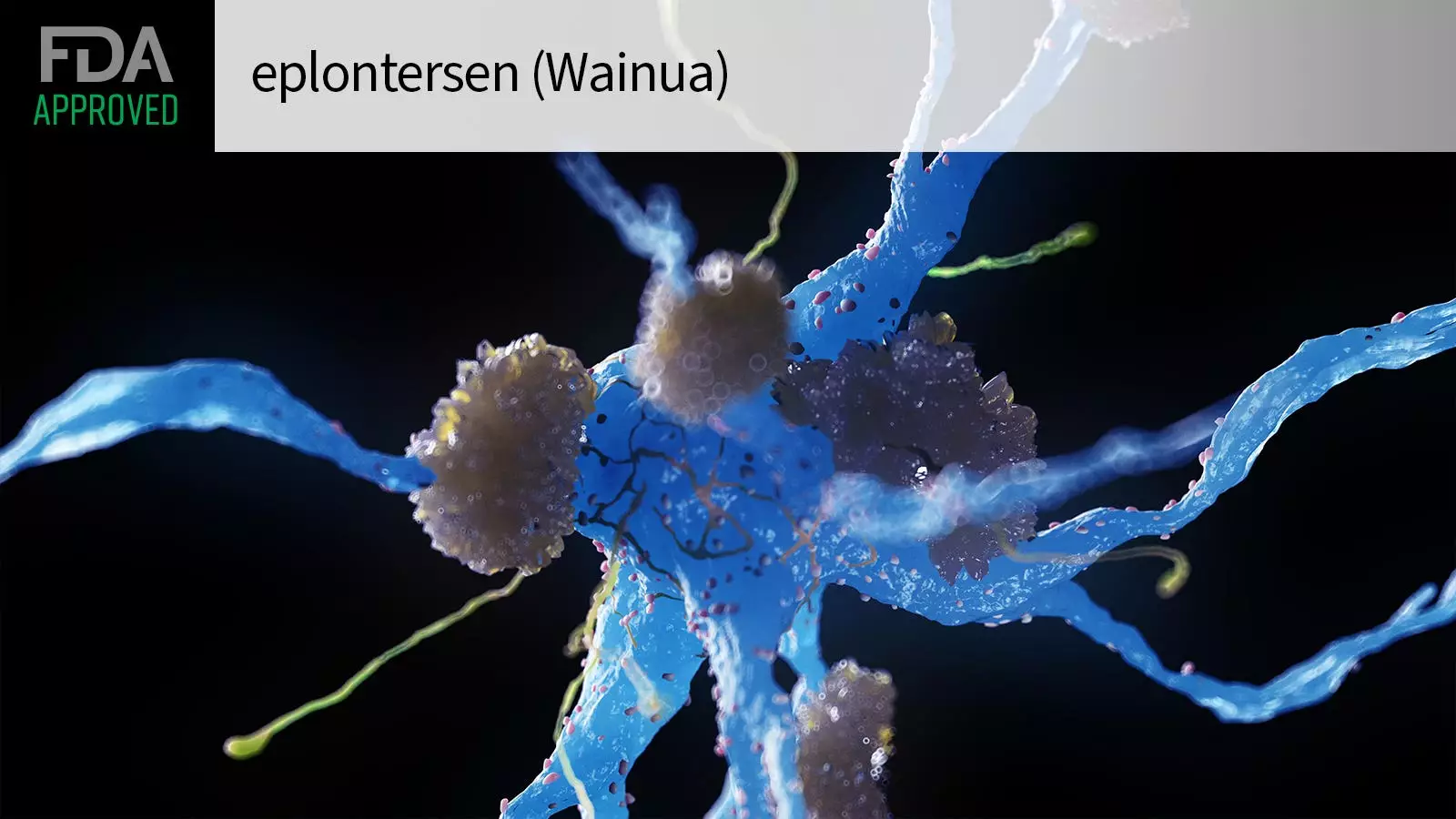In a groundbreaking development, the FDA has recently granted approval for Eplontersen (Wainua) to treat polyneuropathy associated with hereditary transthyretin-mediated amyloidosis (ATTR) in adults. This remarkable achievement has been announced by Ionis Pharmaceuticals and AstraZeneca, paving the way for a potential breakthrough in treating this debilitating condition.
Hereditary ATTR is a genetic disorder caused by a mutation in the TTR gene, leading to the accumulation of misfolded transthyretin protein. This abnormal protein buildup results in amyloid deposits primarily in the peripheral nerves (ATTR-PN) and occasionally in the heart (ATTR cardiomyopathy). ATTR-PN affects a significant number of individuals worldwide, with an estimated global prevalence of 30,000 to 40,000 cases.
Eplontersen represents a pioneering ligand-conjugated antisense oligonucleotide drug specifically designed to target and reduce the production of the TTR protein. Notably, it has demonstrated efficacy in both hereditary and non-hereditary forms of ATTR. The FDA approval was based on the results of the NEURO-TTRansform trial, a phase III study that showed promising outcomes.
Through the NEURO-TTRansform trial, patients receiving Eplontersen exhibited significant improvements in their serum transthyretin concentration, experiencing reduced neuropathy impairment and a better overall quality of life compared to a historical placebo group. Adverse events leading to study drug discontinuation were uncommon, occurring in only 4% of the Eplontersen group and 3% of the placebo group by week 66.
Eplontersen’s approval marks the fourth drug to receive FDA approval for the treatment of ATTR-PN, affirming its potential to address the significant unmet medical needs of patients. Moreover, it is the second antisense oligonucleotide treatment to receive approval, highlighting the value of this innovative therapeutic approach.
One noteworthy advantage of Eplontersen is its self-administration capability, facilitated by an auto-injector. This feature allows patients to conveniently manage their treatment at home, reducing the burden of frequent clinic visits. The drugmakers have announced that Eplontersen will be available in the United States starting from January 2024.
Isabelle Lousada, president and CEO of the Amyloidosis Research Consortium, emphasizes the challenges faced by individuals with hereditary transthyretin-mediated amyloid polyneuropathy and other forms of amyloidosis. Due to symptoms that can mimic other conditions, accurate diagnosis often remains elusive, leading to misdiagnosis or delayed treatment.
Lousada commends the efforts of the drug companies in raising awareness and developing new innovations for this often overlooked or neglected area of medicine. The approval of Eplontersen showcases a significant step forward in improving the lives of individuals and their families affected by hereditary ATTR.
While Eplontersen’s approval for ATTR-PN is cause for celebration, research and development are still underway to explore its potential in treating ATTR cardiomyopathy. The ongoing phase III CARDIO-TTRansform study holds great promise in extending the benefit of this novel treatment approach to a broader range of patients.
With each new breakthrough and innovation, the medical community moves closer to unraveling the complexities of hereditary ATTR and improving the lives of those affected. The approval of Eplontersen represents a beacon of hope for individuals enduring the challenges of ATTR and the medical professionals dedicated to their well-being.


Leave a Reply